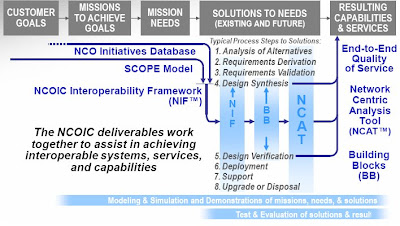Today I attended a very impressive talk by the Federal CIO, Mr. Vivek Kundra at a
Northern Virginia Technology Council Public Policy event. His open and "matter of fact" approach to explaining the coming government IT transformation was focused and direct.
After engaging the audience with a personal anecdote about the 9/11 interview in Arlington that catapulted his professional career, he outlined why Virginia was his model for transforming the Federal information technology platform and bureaucracy. In tackling this huge task, his baseline assumptions appear to be as follows:
- The Federal Government has not done a good job of establishing IT requirements;
- Private companies have not been held accountable for their failures in delivering IT to the Federal enterprise; and
- "Faceless accountability" for the failure of Federal IT efforts must become a thing of the past.
Another key point was that while recovery of the national economy is a clear priority, it is also important to understand what we are recovering to. To that end,
Recovery.gov and the
National Academy of Public Administration are hosting a national online dialog in order to engage the public, IT solution providers and government partners in answering one key question:
"What ideas, tools, and approaches can make Recovery.gov a place where the public can monitor the expenditure and use of recovery funds?"
Mr. Kundra's also outlined his vision of a "context driven government". The key question for successfully implementing this vision is:
"How do we engage the American public in their daily digital life?"
It is now clear to me why the President selected him as the first Federal CIO. His practical and results oriented management style bodes well for us all.
If you would like to participate in the Recovery Dialogue on Information technology Solutions, visit
http://www.recovery.gov/ anytime between April 27th and May 4th.







